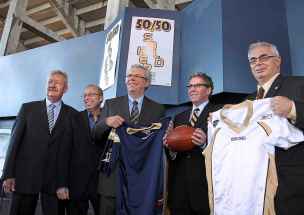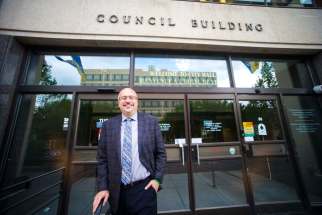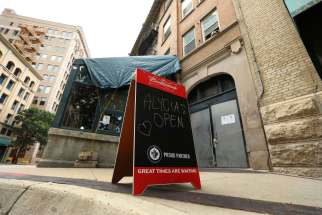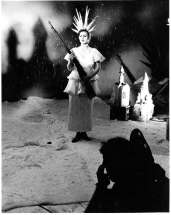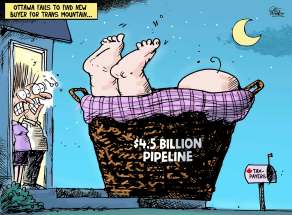Stadium loan-repayment plan failure costs Manitobans more than $100M
Read this article for free:
or
Already have an account? Log in here »
To continue reading, please subscribe:
Monthly Digital Subscription
$0 for the first 4 weeks*
- Enjoy unlimited reading on winnipegfreepress.com
- Read the E-Edition, our digital replica newspaper
- Access News Break, our award-winning app
- Play interactive puzzles
*No charge for 4 weeks then price increases to the regular rate of $19.00 plus GST every four weeks. Offer available to new and qualified returning subscribers only. Cancel any time.
Monthly Digital Subscription
$4.75/week*
- Enjoy unlimited reading on winnipegfreepress.com
- Read the E-Edition, our digital replica newspaper
- Access News Break, our award-winning app
- Play interactive puzzles
*Billed as $19 plus GST every four weeks. Cancel any time.
To continue reading, please subscribe:
Add Free Press access to your Brandon Sun subscription for only an additional
$1 for the first 4 weeks*
*Your next subscription payment will increase by $1.00 and you will be charged $16.99 plus GST for four weeks. After four weeks, your payment will increase to $23.99 plus GST every four weeks.
Read unlimited articles for free today:
or
Already have an account? Log in here »
Hey there, time traveller!
This article was published 25/07/2018 (2700 days ago), so information in it may no longer be current.
A once-promising proposal for financing a part of the construction of Investors Group Field is coming back to bite Manitoba taxpayers.
A big chunk of the initial $160 million provincial loan, which flowed through the University of Manitoba to owner Triple B Stadium Inc., was to have been paid off in the form of city and provincial taxes generated from redeveloping the old stadium site at Polo Park.
But redevelopment has stalled and the cold reality is that the province is on the hook for $118.7 million, including interest charges, and it’s already begun the process of writing off the loan.
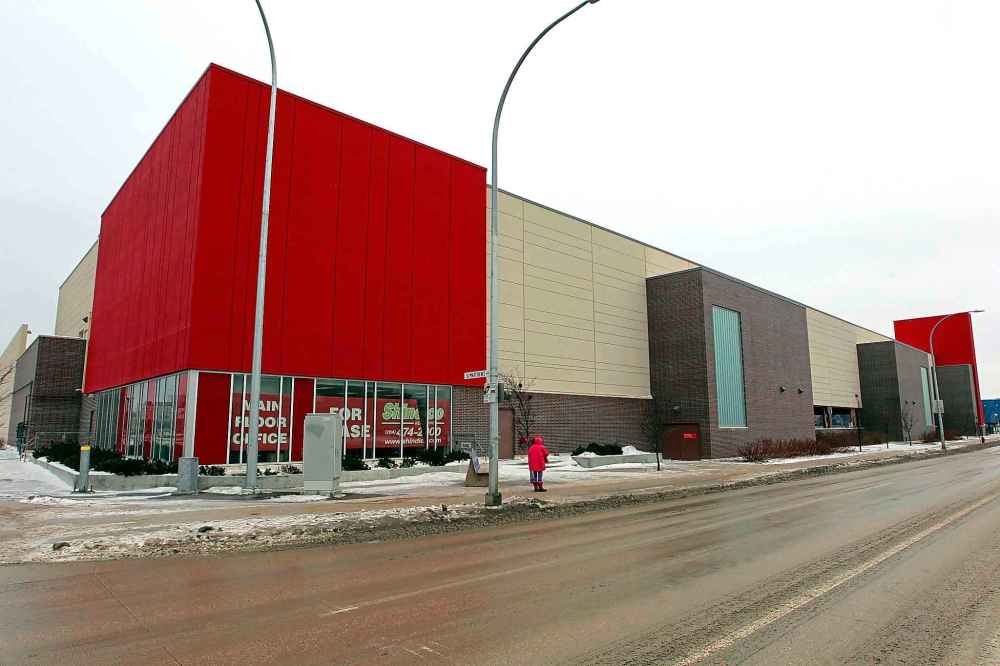
“It continues to be a mess for Manitobans,” Finance Minister Cameron Friesen said Wednesday of the deal struck under the former NDP government to build the new stadium, which opened at the U of M Fort Garry campus in 2013. “There’s a lot of unknowns still. What’s the extent of the financial burden to Manitobans?”
The costs continue to mount for Triple B, a consortium that includes representatives from the province, the City of Winnipeg, the University of Manitoba and the Winnipeg Football Club. It is suing the stadium builder and architect due to ongoing repairs it has had to make to the five-year-old facility.
Timeline
2007 – The Winnipeg Football Club launches a formal search for partners to build a new stadium. Canad Inns and David Asper develop dueling proposals and the Bombers ultimately side with the latter camp. Asper wants to build a $145-million, partly enclosed football stadium and retail complex on the existing Polo Park stadium site and assume ownership of the football club.
June 2008 – After Ottawa declines funding Asper’s original design, he unveils a second stadium plan for South Point Douglas, involving waterfront development and a water park. He says both stadium options are still on the table. Mayor Sam Katz and Premier Gary Doer show support for the Point Douglas plan, which would include luxury retail re-development in Polo Park called “The Elms”. Asper plans to ask the federal and provincial governments for $40 million.
2007 – The Winnipeg Football Club launches a formal search for partners to build a new stadium. Canad Inns and David Asper develop dueling proposals and the Bombers ultimately side with the latter camp. Asper wants to build a $145-million, partly enclosed football stadium and retail complex on the existing Polo Park stadium site and assume ownership of the football club.
June 2008 – After Ottawa declines funding Asper’s original design, he unveils a second stadium plan for South Point Douglas, involving waterfront development and a water park. He says both stadium options are still on the table. Mayor Sam Katz and Premier Gary Doer show support for the Point Douglas plan, which would include luxury retail re-development in Polo Park called “The Elms”. Asper plans to ask the federal and provincial governments for $40 million.
September 2008 – Asper’s real estate company Creswin Properties signs a memorandum of understanding to build a football stadium at the University of Manitoba, along with refurbishment of the University Stadium and construction of new athletic facilities. The City of Winnipeg agrees to sell Creswin the site of the old Canad Inns Stadium at full market value, believed to be about $30 million.
March 2010 – The NDP government, helmed by Greg Selinger, announces a $90-million loan to the University of Manitoba to allow shovels to hit the ground on a new stadium by summer. The province also promises a $15 million grant and Creswin Properties is on the hook for $10 million. Asper must also raise another $75 million to repay the provincial loan by March 1, 2016 if he wants to assume control of the non-profit Winnipeg Football Club.
November 2010 – The province and the Bombers pivot to plan B for stadium construction, which sees Asper bow out, not wanting any ownership rights with the football club and opening the door for other private investors to develop the former Canad Inns stadium site. Selinger says property tax revenue from the redeveloped site would pay for construction of the new stadium. Mixed-use development, including housing, retail and commercial ventures, are considered. By December, Asper and Creswin Properties get a $4.1 million payout for their work and leave the stadium project.
November 2012 – The Bombers play their last game at the old Canad Inns stadium.
June 2013 – The Bombers play their first game in the new stadium at U of M, after a year-long delay.
September 2013 – The football club finds $350,000 to revamp its press box, which isn’t properly shielded from the elements. It’s one of several design flaws in the new stadium, which also include drainage problems and leaking water into luxury suites.
March 2015 – Triple B Stadium Inc. sues architect Ray Wan and builders Stuart Olson over design and construction deficiencies with the stadium. Stuart Olson strikes back saying Triple B and the province rushed the project. According to University of Manitoba financial statements, the principal and interest outstanding on the primary stadium construction loan is $186.7 million.
October 2015 – Triple B undertakes $4.7 million in remediation efforts to fix up the stadium before hosting the Grey Cup the next month. It prepares for subsequent repairs costing more than $35 million after the event.
January 2016 – Investors Group Field’s total cost is forecast around $376 million by the time all loans are paid back. The Selinger government expects the former Canad Inns site to be redeveloped in full by 2019 and to start generating enough tax revenue to cover interest payments.
July 2018 – With interest, including some coming from the first few years of the Bombers’ portion of the debt, the Phase 1 loan has grown to $118.6 million.
Source: Free Press files
“We have spent approximately $27 million to date on repairs, and have additional work to be completed,” Triple B chairman Andrew Konowalchuk said in an email Wednesday. “We have not identified the total of damages related to our statement of claim.”
In its 2018 financial report, the University of Manitoba recognized that there was little prospect of recovering the Phase 1 portion of the loan. Tax revenues from the old stadium site, which is so far 90 per cent undeveloped, are virtually non-existent. Under the convoluted financing arrangement, the province, not the university, bears ultimate responsibility for the loan.
“(The old stadium) site was originally anticipated to be totally developed by 2019,” Friesen said Wednesday. “And here we are in July of 2018. We’re staring at a Martian moonscape over there on the former site of the stadium. There is nothing but weeds and there is no revenue coming in.”
In an earlier statement to the Free Press, Friesen said the former NDP government “devised an overly complex and confusing plan to mask expenses and apply property tax revenues from the former stadium” to repay the loan.
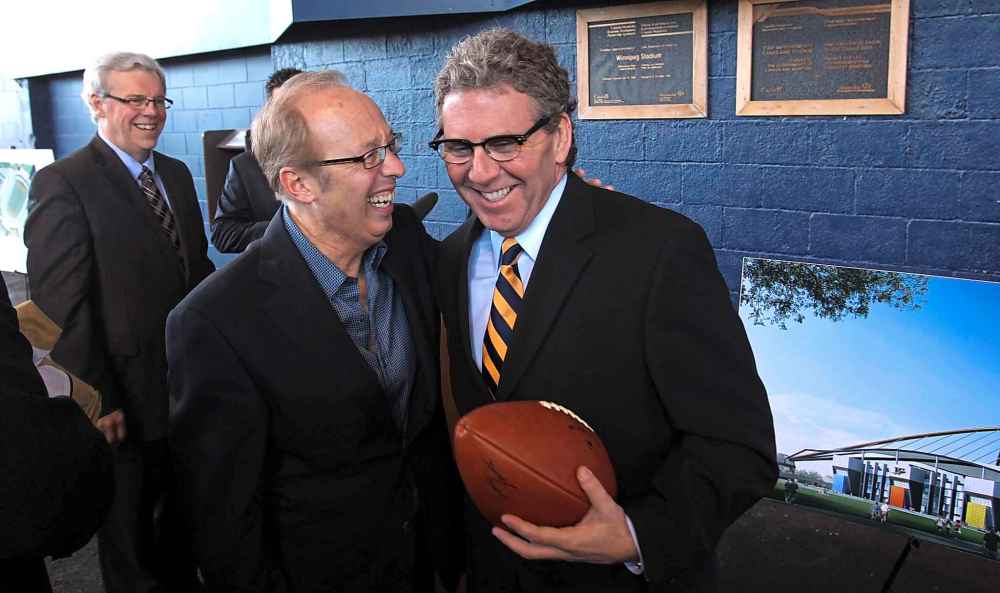
“It was a deliberate plan to understate the actual financial obligations of the province to the project. As a result, over $100 million of costs to date have been written off by the province,” the minister said.
Former premier Greg Selinger did not immediately return a request for comment.
Todd MacKay, Prairie director of the Canadian Taxpayers’ Federation, said he wasn’t surprised by the news Manitobans would be on the hook for millions related to Investors Group Field debt. That’s not to say he’s not angry about it.
“When governments put huge amounts of money at risk, you hope that it’s going to turn out well. But there’s always a big risk that it doesn’t. In this case, it didn’t turn out well and taxpayers are going to get hit for in the neighbourhood of $100 million dollars. That’s absolutely unacceptable and it’s appalling – you just wish it were more surprising,” MacKay said.
He said the Pallister government needs “to be taking a careful look” at what went wrong and “make sure this stops happening.”
Lawyer and entrepreneur David Asper said he was not shocked at the debt crisis, largely because the city and province rejected his plan, which would have created a much stronger opportunity to repay the stadium construction loan.
“There was an opportunity to have a viable, single private sector engine behind this project. And it’s unfortunate that other choices were made,” said Asper, who had submitted more than one stadium proposal before the creation of Triple B.
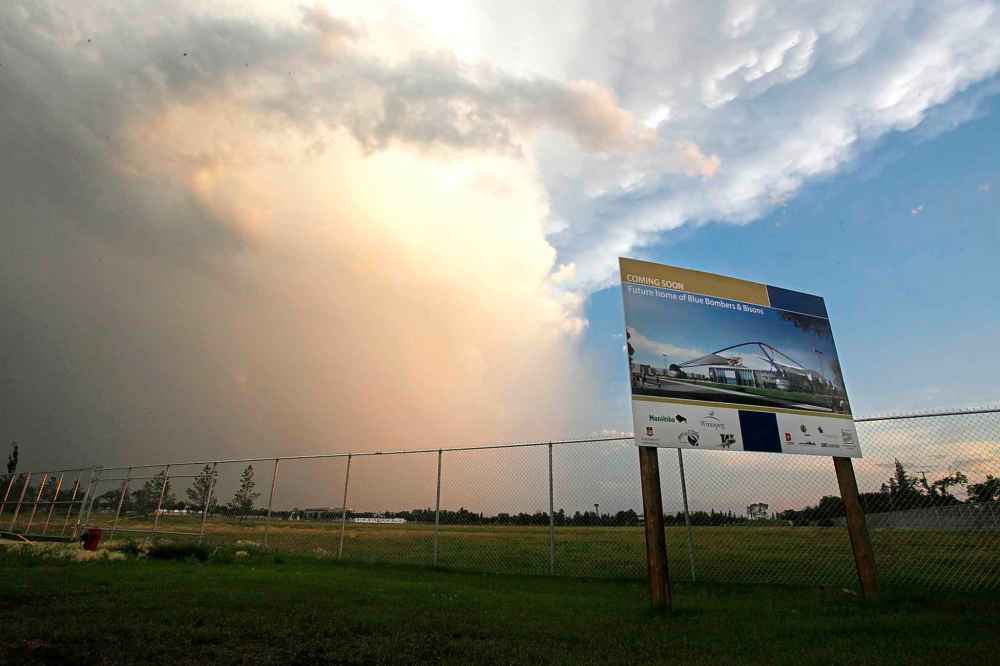
Asper noted that there have been big changes in the retail industry that have limited the amount of tax increment financing available from the old stadium site to service the loan. Although he acknowledged that he, too, would have faced those same risks, he still believes the retailers he was recruiting for a retail power centre would have been able to survive the shift in focus from bricks-and-mortar retailing to online shopping.
“There’s an element of risk to this project. But I was prepared to risk a lot to make it work. Every retailer that we would have had in there is still very successful today, through Amazon and everything else.”
The original $160 million construction loan was to be repaid in two phases. Phase 1 — $85 million — was to be repaid by municipal and provincial taxes collected (under the Community Revitalization Tax Increment Financing Act or TIF) on the former stadium site up to 2038, while Phase 2 — $75 million — was to be paid by the Blue Bombers. The football club has so far been making its payments.
With interest, the value of both loans has risen. According to the U of M financial report, the Phase 1 loan has grown to $118.7 million, in part because interest on the Bomber portion of the debt was, for a time, transferred to that account. The total owing on Phase 2 is $82 million, according to the U of M financial report.
Konowalchuk said Triple B continues to receive monies collected by the city and the province under TIF. All TIF monies received are paid to the University in accordance with the loan agreements, he said.
Auditor General Norm Ricard said he has no plans for a review of the Investors Group Field project. He said his office has been monitoring the financial accounting in its review of the University of Manitoba’s financial statements as well as those of the province.
“We’re satisfied with how it’s being accounted for,” Ricard said Wednesday.
Meanwhile, Friesen said the Pallister government is still “contemplating next steps on how best to learn more about what went wrong under the previous government and why Manitobans were kept in the dark” about the true cost of Investors Group Field to taxpayers.
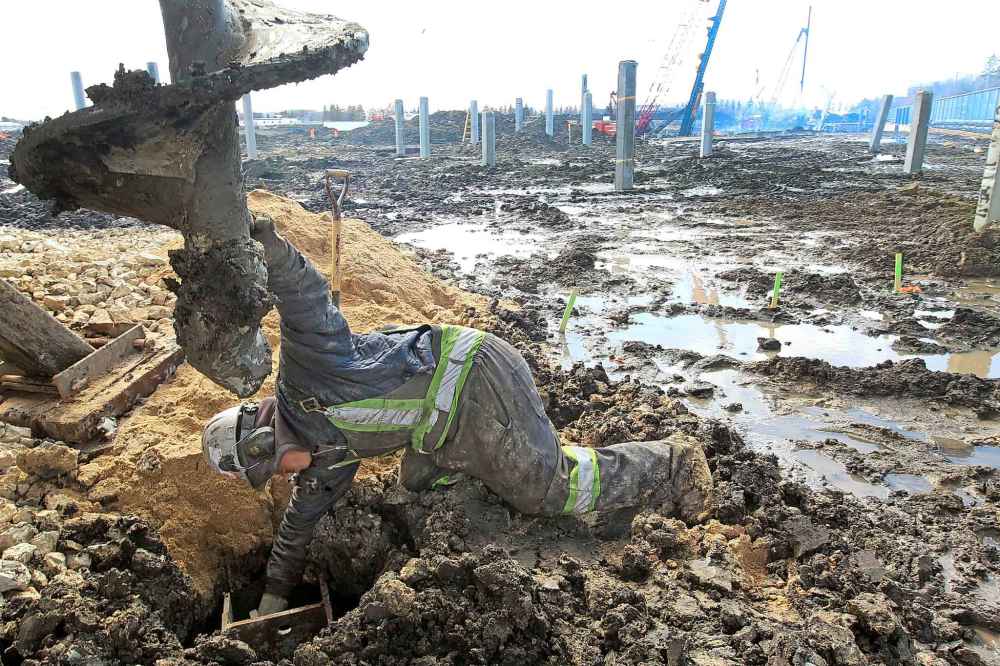
“The Auditor General’s office is independent from government. While we have made our views on this issue known, it is up to the AG to decide whether to look further at it in a future follow-up report,” he said.
— with files from Dan Lett
larry.kusch@freepress.mb.ca
jessica.botelho@freepress.mb.ca
Twitter: @_jessbu

Our newsroom depends on a growing audience of readers to power our journalism. If you are not a paid reader, please consider becoming a subscriber.
Our newsroom depends on its audience of readers to power our journalism. Thank you for your support.
History
Updated on Wednesday, July 25, 2018 1:23 PM CDT: adds photo, info about Triple B




